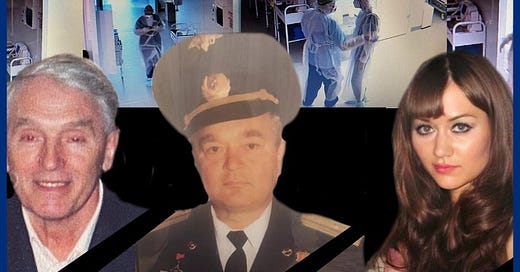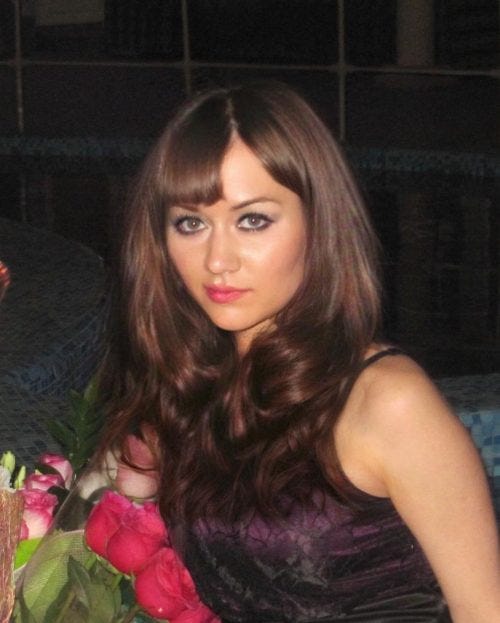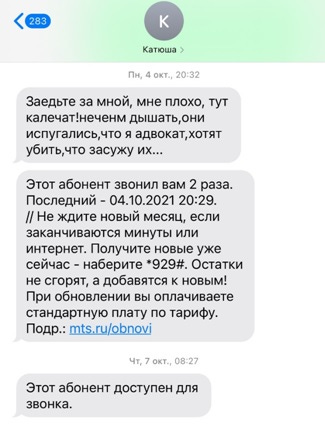"They were simply killed": Brazen butchery inside Moscow's main COVID ward
Horror stories from Kommunarka hospital
The unspeakable truth about the “global pandemic” is that if COVID hospital wards were abolished, COVID-attributed deaths would likely drop to zero. In Russia, a huge number of COVID fatalities have been caused by hospital-transmitted infections and flagrant medical malpractice.
For elderly patients unable to take care of themselves, the appalling conditions inside many of Russia’s “red zones” amount to a death sentence (see: “Slaughterhouse Russia” and “The ugly truth about Russia's COVID wards”).
Below is a truly gut-wrenching article published by Russian outlet Notepad (hat tip to Katyusha for bringing it to our attention) that documents stories of horrific abuse at Kommunarka hospital—the home of Moscow’s main COVID ward. This is the same hospital that Putin toured while (infamously) donning a hazmat suit.
It’s a machine translation so sorry about that:
“They were simply killed”: relatives of patients with covid-19 demanded investigators conduct an inspection of Kommunarka hospital
In one of the largest covid hospitals in Moscow, Hospital No. 40 in Kommunarka, something terrible was happening this October. The relatives of the patients who were treated and died there turned to the editorial office of “Notepad” with their testimonials. The stories of relatives are similar to one another, Muscovites say there are dozens of similar stories, but many are afraid to speak. “Notepad” talked with those who are determined to find out the causes of death of their loved ones to the end and have already turned to the Investigative Committee.
Vladimir Kolodezev entered Kommunarka on September 30, 2021. The man was diagnosed with community-acquired pneumonia, but he was treated at home, as the condition allowed.
“The day before, dad fainted, we were afraid that he had a stroke against the background of his illness. They called an ambulance. Doctors began to say that it is better to be hospitalized,” says the man's daughter Marina.
The military pilot, colonel, and honored sniper was supposed to be hospitalized in a military covid hospital, but paramedics quickly began to convince that Kommunarka was the best hospital in Moscow, and all stars and “VIPs” were treated in it.
“He walked into the emergency room with his feet. All the necessary tests were taken from him. The temperature had already dropped by that time, the saturation was relatively high - 95%, he felt relatively well,” says Marina.
Then she said goodbye to her dad with a light heart. But after a few hours, on the same day, Vladimir was transferred to intensive care. The relatives still cannot understand the reasons for this, according to them, nothing was explained to them.
“He had a telephone. He called and said that it was cold there, and he was constantly forced to put on an oxygen mask, although he could breathe without it. And it was very difficult for him to breathe in the mask,” says Marina.
A few days later, on October 3, Vladimir, unexpectedly for everyone, was put into a drug-induced sleep and transferred to mechanical ventilation.
On October 7, the day when his wife is discharged from the same hospital No. 40, but from a different department, Vladimir dies. The man's stroke was never confirmed.
“On October 7, my father's heart stopped. The medical record provided by Hospital No. 40 does not contain the names of the doctors who made the appointments. Sepsis was named as one of the causes of death. In the morgue, dad was unrecognizable—the blue nose, the slanted lips, the lower lip was pressed in, the whole face was swollen,” recalls Marina.
At the time when the man was transferred to a ventilator, his second daughter, Ekaterina, entered Kommunarka.
“When the ambulance came to her, we said that her parents were in Kommunarka, and asked to be taken there too. She also went into the waiting room herself, and the temperature and oxygen saturation were also generally normal. At home, the temperature rose, but both father and sister were admitted to the hospital with a temperature of 36.6,” explains Marina.
At first, Ekaterina and her mother were in the same room. The girl claimed that no one approached her and did not agree with such methods of treatment, asked to let her write a refusal and let her go home. On October 4, after a categorical refusal from treatment, under the pretext that there was a more convenient oxygen supply in another ward, Ekaterina was transferred. And soon they were taken to the intensive care unit.
“She was categorically against the proposed treatment. But she was transferred to another ward, undressed. She had her phone with her, but no charger. From the intensive care unit, she called us, said that she was suffocating in the mask. The last message from her is that she is simply being killed. She called us while there was enough charge. Then she stopped. We handed over the charger, but, apparently, it never reached her,” sighs Marina.
On October 7, the day her father died, Ekaterina is put into a drug-induced sleep and transferred to mechanical ventilation. Later, she will also be diagnosed with sepsis. According to Marina, Catherine's kidneys began to fail in turn, cerebral edema began, and she had a stroke. On October 21, Ekaterina died.
Vladimir was 75 years old. Catherine - 38. Relatives believe that both could have recovered if they had not agreed to go to the hospital.
“We wrote an appeal to the hospital management through an electronic form, we wanted to get a personal appointment with the head physician, Denis Protsenko. But we were not allowed. We arrived at the hospital, said that we need to meet with Protsenko about the death of relatives. They answered us: ‘Oh, your relatives have died. Well, what's wrong?’ Then we turned to the Investigative Committee,” says Marina.
Maria Stepanova sent her 85-year-old father, Anatoly Nikolaevich, to Kommunarka. He was hospitalized on October 19, 2021.
“He entered there in a pre-stroke state. His body did not move at all. He could not sit up, roll over, but his hands were moving. He had coronavirus. Lung lesion on CT was 5.25%, we treated him at home. The doctor came and observed. Once again, he came and said that his father had a pre-stroke condition, and it would be better to put him in the hospital,” says Maria.
Anatoly Stepanov was taken to Kommunarka. When he was hospitalized, only his arms moved, he could not sit up on his own and he could not even turn over.
“The next day we found the doctor’s phone number. She told me that my father ‘sits, eats, walks.’ We had so much happiness, because when he entered there, he did not even turn over. And every day we were told the same thing,” recalls Maria.
Relatives gave Anatoly Nikolayevich a telephone so that he could contact them. Nevertheless, for the first four days, according to them, there was no connection with him at all: the phone seemed to be lost.
“Then we were told that the phone was still found, but he could already talk only in the presence of the doctor. We did not know then, and then in conversations with other relatives we found out that everyone who had loved ones there was told that everything was in order, and the phone was lost somewhere, and then suddenly they called and offered condolences: they say, your relative died ... Everyone believes to the last that their loved ones are recovering, but in fact this is not at all the case,” says Maria.
After a while, the man was transferred to intensive care.
“He was in intensive care for 7 days. All 7 days we were told that everything is fine. At the same time, he was injected with the experimental drug Levilimab (it was originally developed for the treatment of rheumatoid arthritis, later it was used to treat coronavirus infection - Ed.). He did not give any written consent to this treatment,” says Maria.
As the girl says, all this time, doctors complained to them that the man was taking off his mask and behaving aggressively.
“Everywhere it was written that he fights, shouts at doctors, swears. We then talked with other relatives of the patients, many take off their masks, because oxygen is not being supplied correctly, and people in masks are simply suffocating. Probably, with his behavior, he was constantly trying to attract attention to himself. Once we called him, and he managed to tell us ‘this is hell, it is better to die at home,’” Marina recalls.
On October 26, Anatoly Stepanov died. Relatives managed to save several of his posthumous photos. There are traces of bruises and scratches on them.
“They explained to me this way: they restrained him when taking tests,” says Maria.
The relatives have collected many questions for Protsenko: why they were not informed about the methods of treatment, how they received consent to these methods of treatment, why they were not informed that the patient's condition had worsened. Maria hopes to find out the answers to these questions in the appropriate authorities. She has already written statements to the police, the investigative committee, the prosecutor's office and the Ministry of Health and demanded that the hospital provide video from surveillance cameras in order to find out for certain how her father was treated.
On the eve of the publication, Maria managed to get a video from surveillance cameras from the intensive care unit of the “red zone” of Kommunarka. Materials were requested on the case of her father's death. According to her, they were filmed in the presence and with the permission of an employee of the Investigation Department for the Troitsky and Novomoskovsky administrative districts. Maria was outraged that some of the resuscitation staff were without goggles, gloves, with masks lowered to their chin.
“Of all the videos, I still found my father—how he was taken to the intensive care unit and how the doctors said that Anatoly Stepanov would live until morning. I reported that I saw the head of the TiNao [Troitsky and Novomoskovsky administrative districts] Investigation Department, who refuses to open a criminal case. But I was not even allowed to reshoot this period of time. And I believe that TiNao employees are harboring the crimes of the medical staff in the hospital number 40,” Maria is sure.
“There are many of us with similar stories. But someone is afraid to speak, someone is simply afraid, someone simply does not want to fight, someone is desperate to such an extent that he believes that nothing can be proved. Many are scared that they themselves, with their own hands, sent their relatives to death, putting them in a hospital,” says Maria.
We also note that Muscovites, as before, continue to complain that they are not given the belongings of their relatives after their death. Residents of the capital are asking the leadership of Kommunarka to return the belongings of those who died from the coronavirus. As they said, for this it is necessary to go to the authorities, write applications, pay duties, communicate with officials, wait six months, and sometimes enter into an inheritance. "To just get the bag of memory and go through the grieving process that every bereaved person deserves."
As a reminder, earlier residents of the city of Stary Oskol in the Belgorod region complained about a similar situation. They turned to the editorial office of “Notepad”, wishing to point out the problems with medicine in the city. Tragic stories often happened to patients in the local hospital before, the coronavirus exacerbated the situation. Relatives file complaints with law enforcement agencies, criminal cases are initiated, but the proceedings do not lead to anything. The relatives of the patients are sure that the investigation is being deliberately delayed so that the perpetrators evade responsibility. They recently decided to team up and send collective complaints to finally get noticed.
For example, the Investigative Committee of the Belgorod Region for a year has not been able to find suspects in the deaths of patients at the Stary Oskol covid hospital. It was reported that people could die due to surges of oxygen, suffocate , but during this time the investigation did not confirm, but did not deny this fact. As well as not even identified the possible culprits of the tragedy. Sergei Gladysh and Daria Novikova, whose father died on that fateful night in the hospital, have already turned to all possible authorities, but the investigation is dragging on, and their complaints are simply forwarded by the prosecutor's office and the investigative committee.











There are only a few countries left that use mechanical ventilation for COVID patients (Russia and the US being amongst them), which is a known factor for lung fibrosis. Even India used oxygen therapy when they had their Delta wave peak in May last year. Other countries supported India by sending oxygen concentrators - not ventilators!
I heard a guy say he got pumped with Remdesivir without his consent or knowledge when in the hospital. He only found out because he asked what they were putting in him.